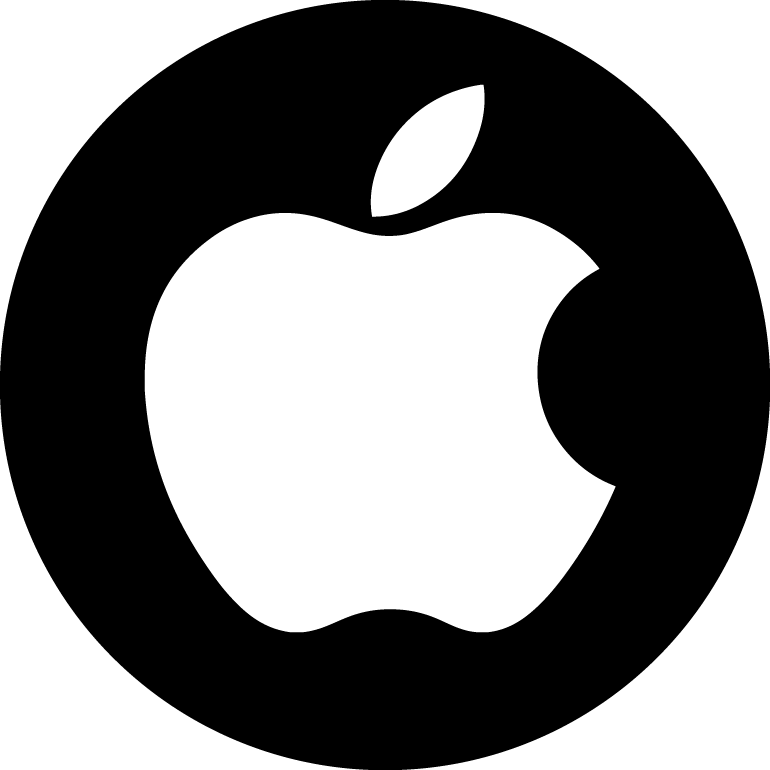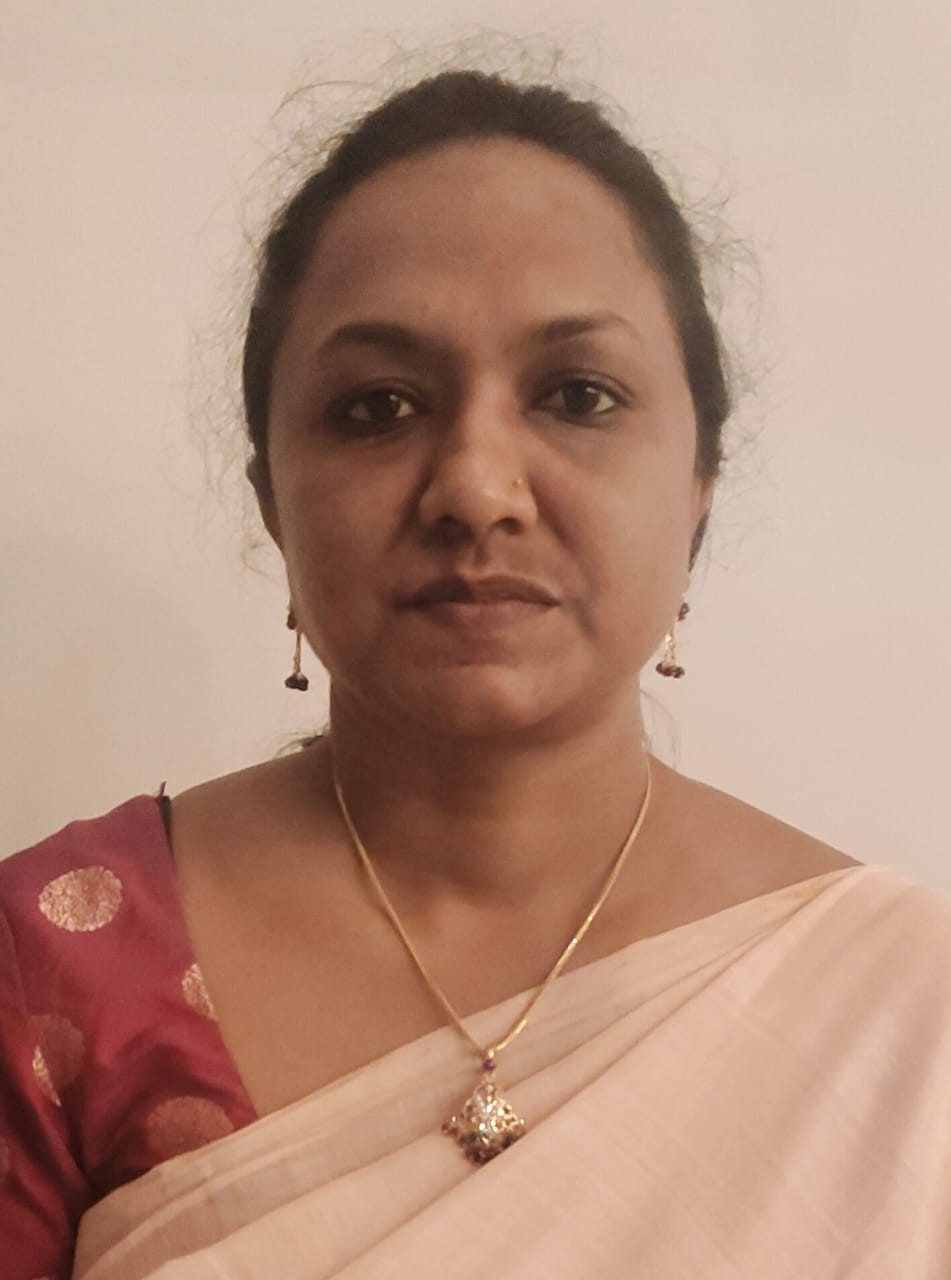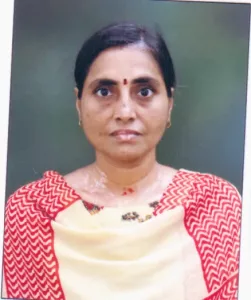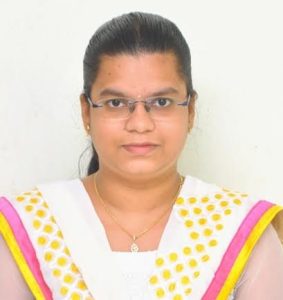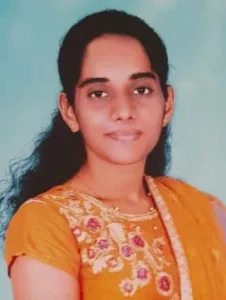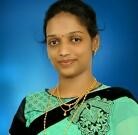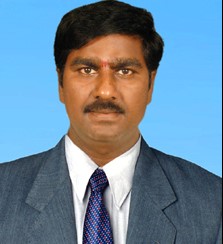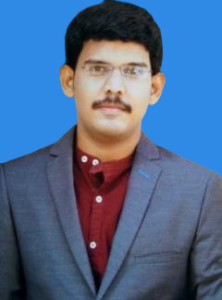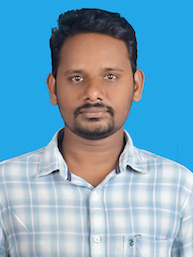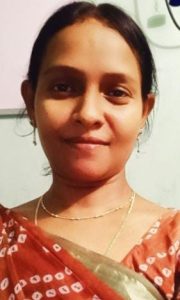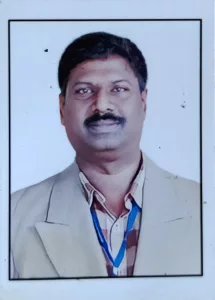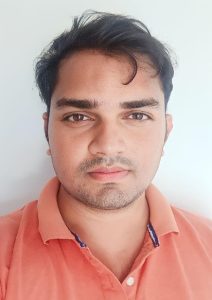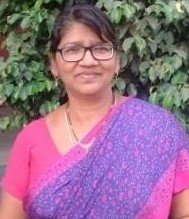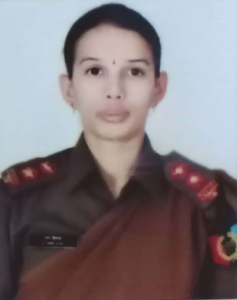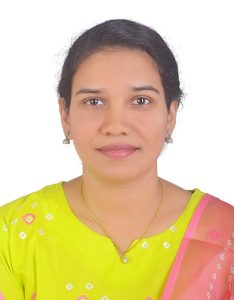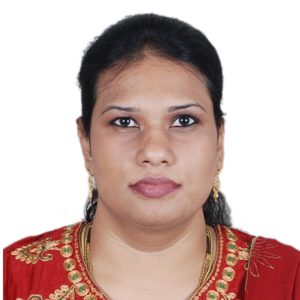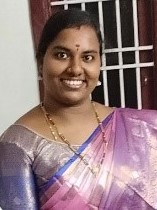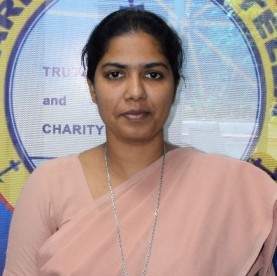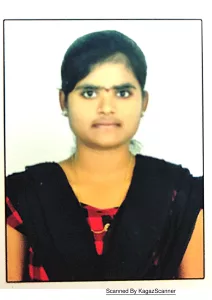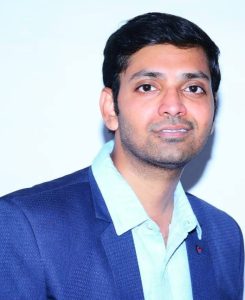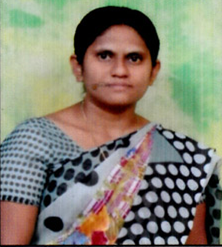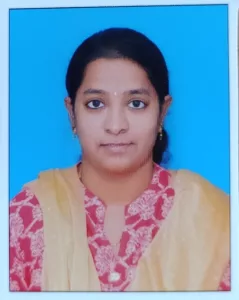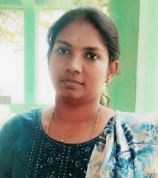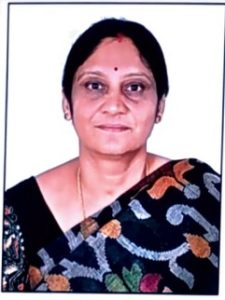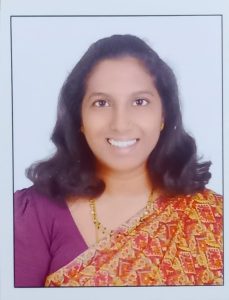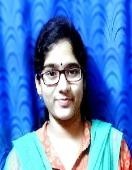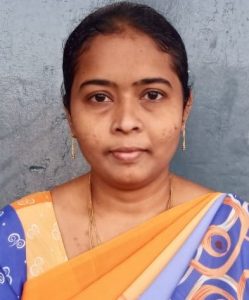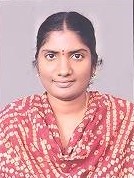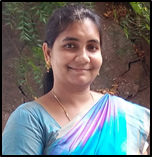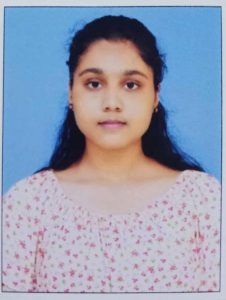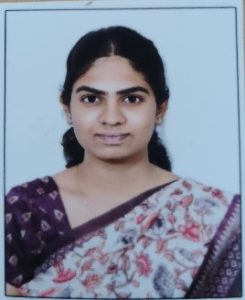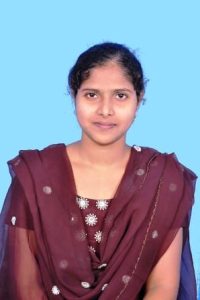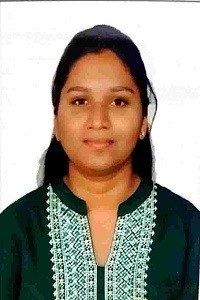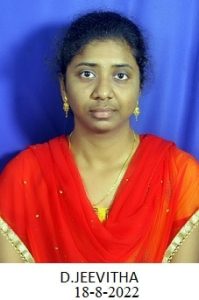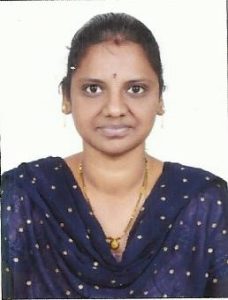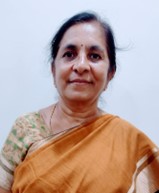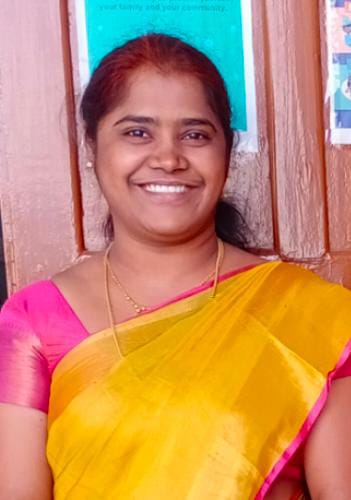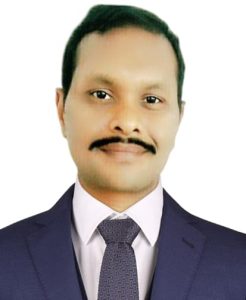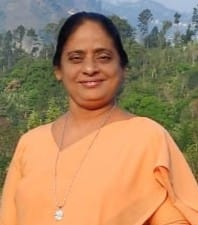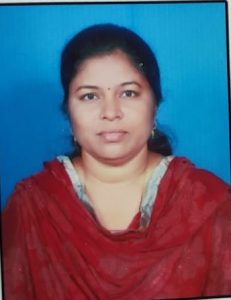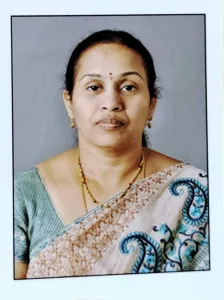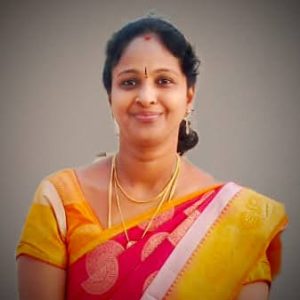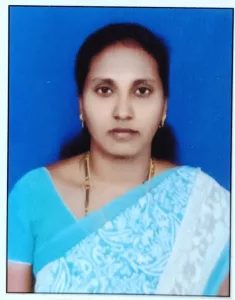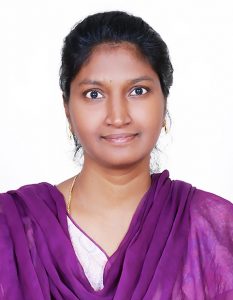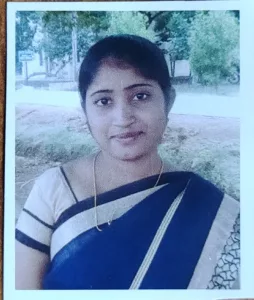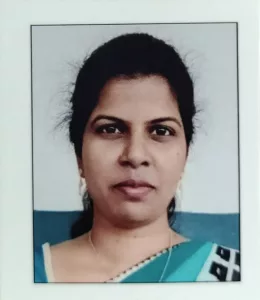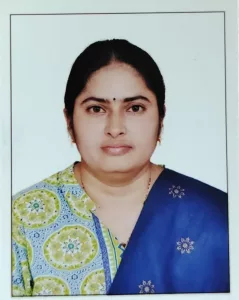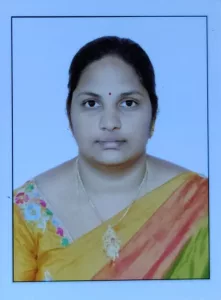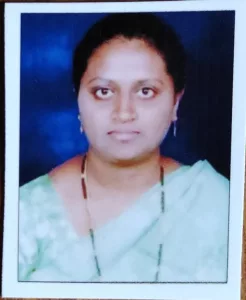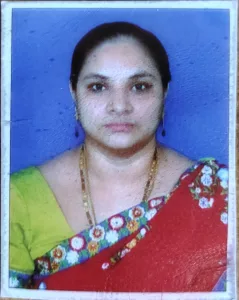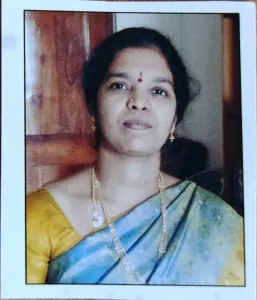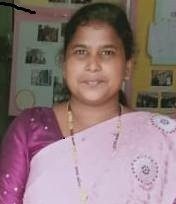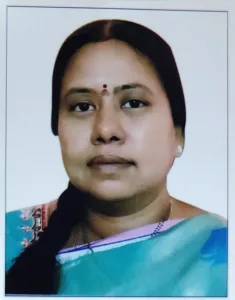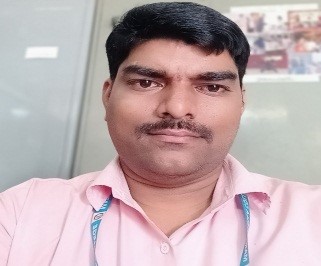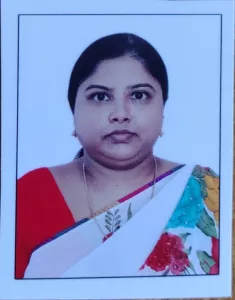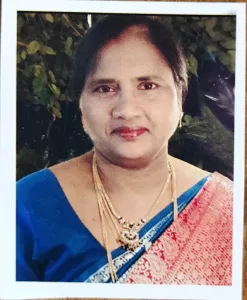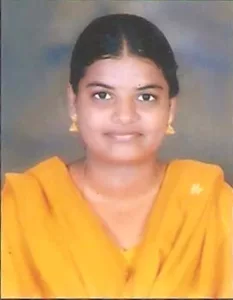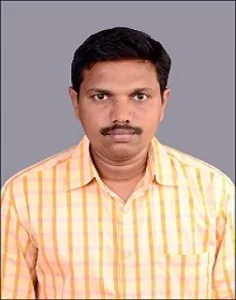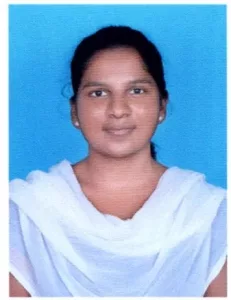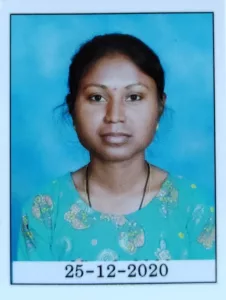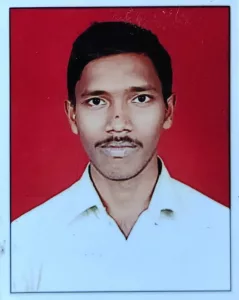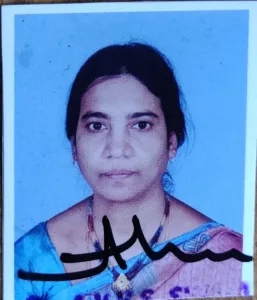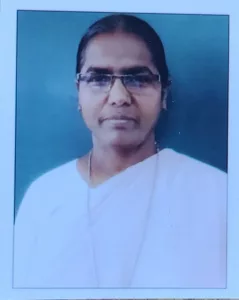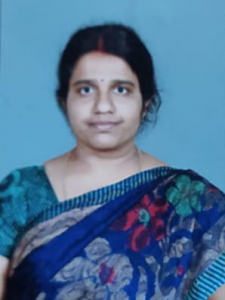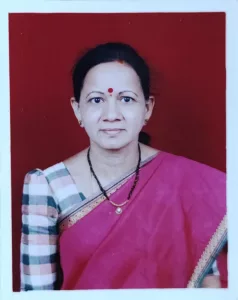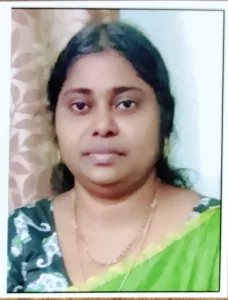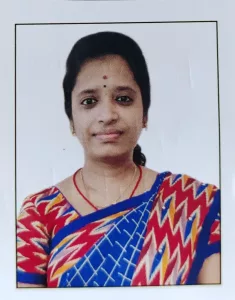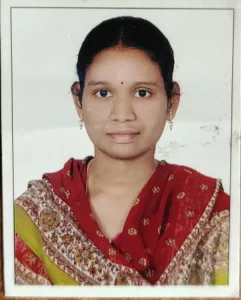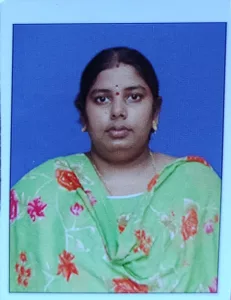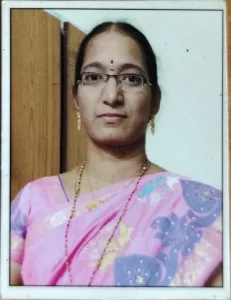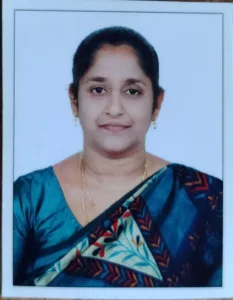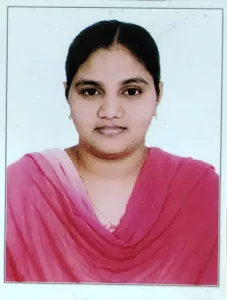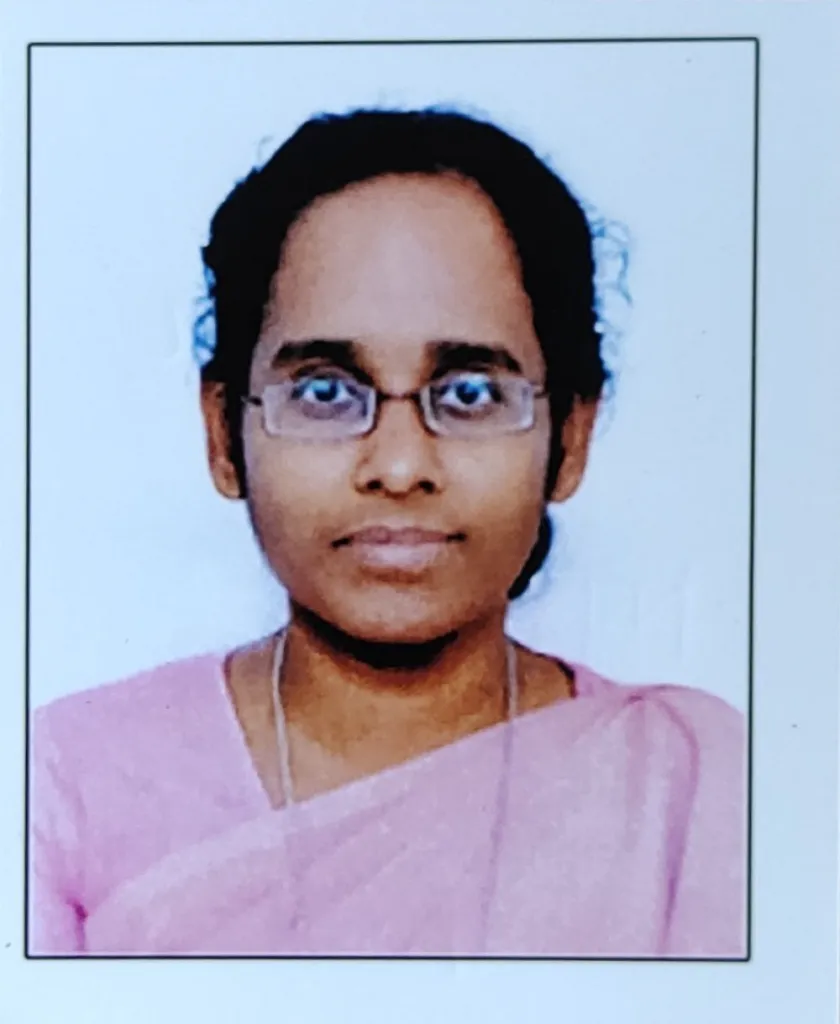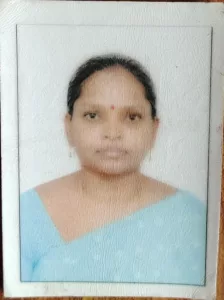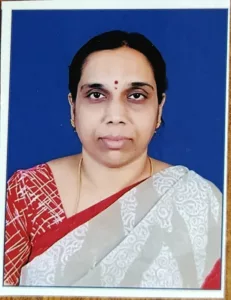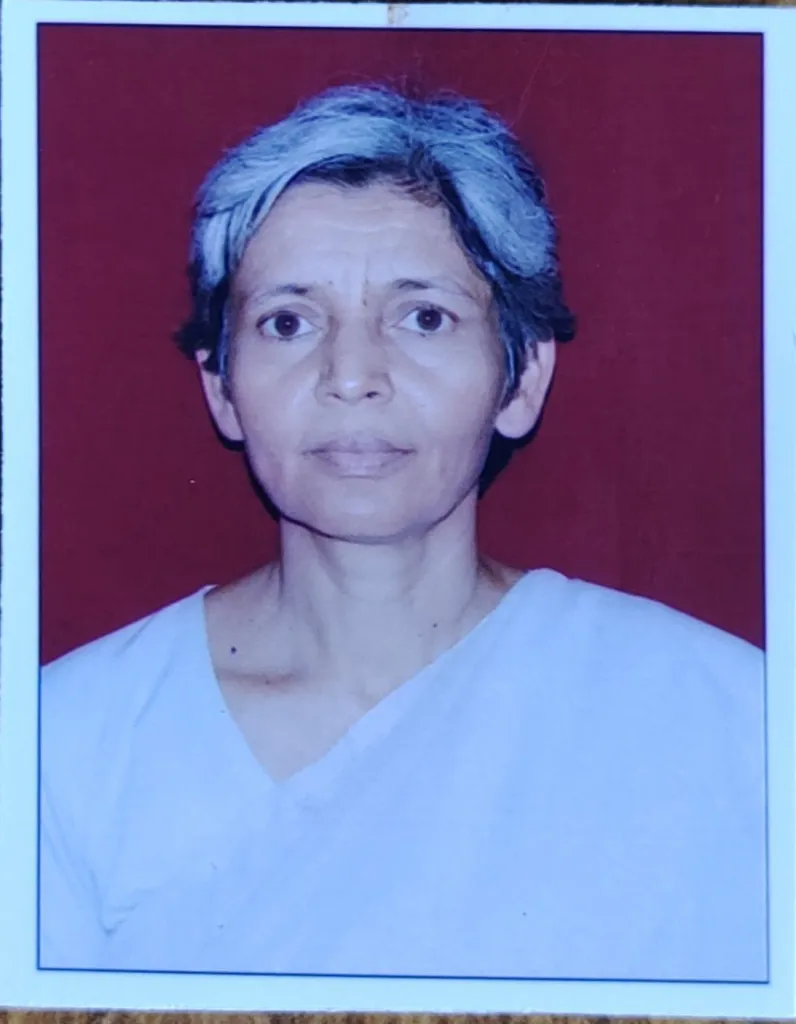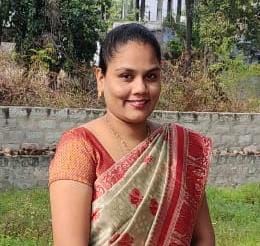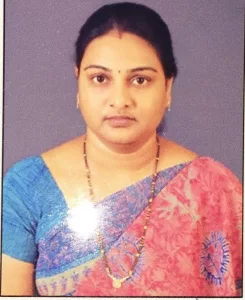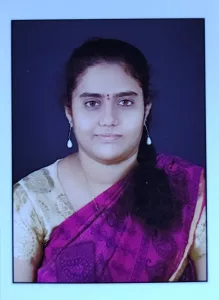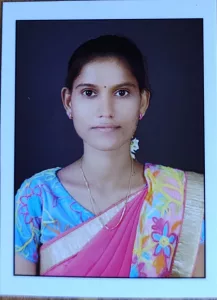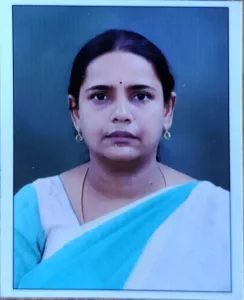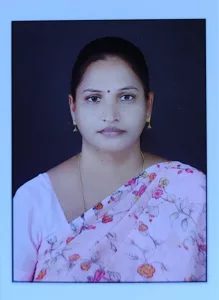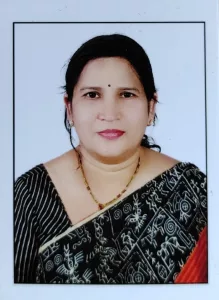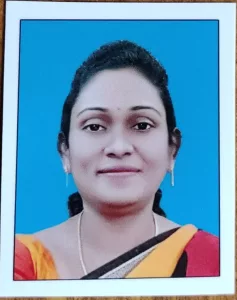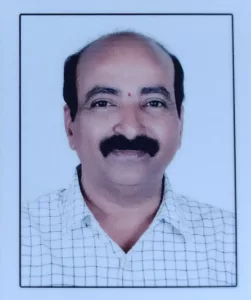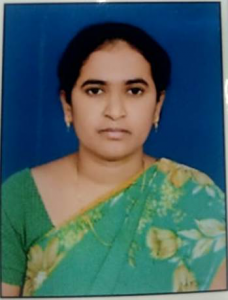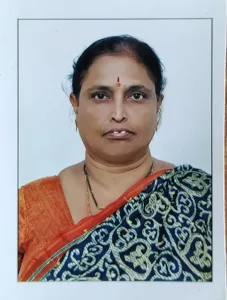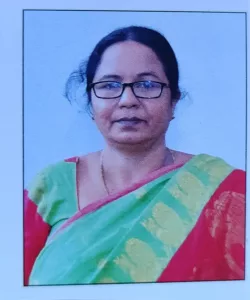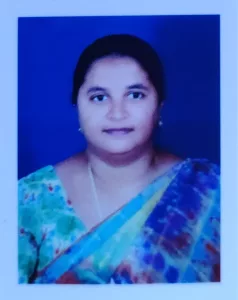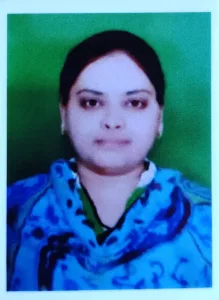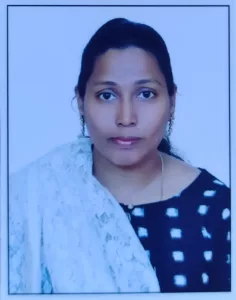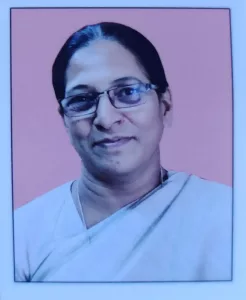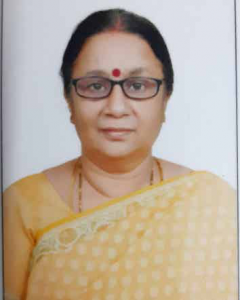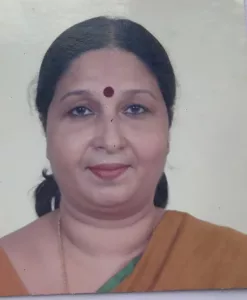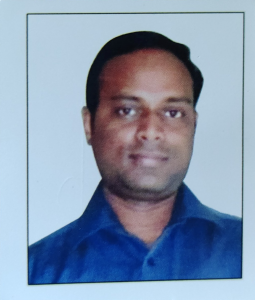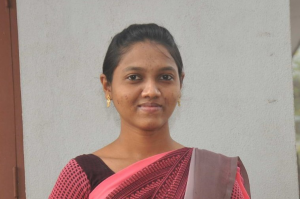MATHEMATICS
-Empowering Minds through Mathematics
An Overview of the Department
1. Introduction
The Department of Mathematics was established in 1962 with the goal of fostering analytical thinking, problem-solving skills, and mathematical reasoning among students. The department is committed to providing a strong foundation in mathematics, equipping students with the knowledge required for higher education, research, and industry, and holistic student development, preparing young women to meet the challenges of a dynamic world with confidence and an environment of academic excellence.
Our vision is to inspire and empower students through quality education in mathematics, while our mission focuses on academic excellence, skill development, and innovation in teaching mathematics.
Vision
To empower students with strong mathematical foundations, critical thinking, and problem-solving skills, fostering academic excellence, innovation, and ethical responsibility to contribute meaningfully to society and address global challenges.
Mission
M1: To provide quality education in mathematics through a dynamic and multidisciplinary
curriculum, promoting analytical thinking and research-oriented learning.
M2: To instill leadership and social responsibility by encouraging students to apply
mathematical knowledge to real-world problems and community service.
M3: To cultivate an inclusive and collaborative learning environment that nurtures innovation,
sustainability, and lifelong learning.
M4: To prepare students for different career opportunities and higher education through skill
enhancement and value-based education.
2. Historical Background
The Department introduced the BSc Mathematics programme with Physics and Chemistry in 1962. Initially, faculty from Chennai supported the department, and in 1968, Sr. Susan, a former correspondent and provincial, joined as one of the first faculty members. Over the years, dedicated lecturers such as Ms. B. Koteswaramma (HoD, 1971-1998), Ms. Durga Subbayamma (1971-1989), and Ms. Leela Ratnam (1976-1990) played a significant role in shaping the department. Since 1998, Ms. G. Usha Kumari has been leading the department, ensuring its continuous growth.
To cater to evolving student interests and industry needs, the department introduced new programmes such as BSc Mathematics with Physics and Computer Science in 1991, BSc Mathematics, Statistics, and Computer Science, BA Mathematics, Economics and Statistics and MSc Mathematics in 2003, and BSc Mathematics with Electronics and Computer Science in 2007. With the introduction of autonomy in 2003, the department also offered innovative two interdisciplinary elective courses: Quantitative Aptitude and Analytical Skills and launched certificate courses like Arithmetic; Sets, Relations & Functions on MOODLE.
3. Academic Programmes
The department offers undergraduate programmes in Mathematics with interdisciplinary combinations, ensuring students gain a comprehensive understanding of both theoretical and applied mathematics. The courses offered in Mathematics include:
Core Courses: Differential Equations, Analytical Solid Geometry, Group Theory, Numerical Methods, Laplace Transforms, Special Functions, Ring Theory, Introduction to Real Analysis, Integral Transforms, Linear Algebra, and Vector Calculus.
Elective Courses: Functions of Complex Variables, Advanced Numerical Methods, Number Theory, and Mathematical Statistics which are skill enhancement courses.
Interdisciplinary Electives: Analytical Skills, a Skill Enhancement Course and Basic Mathematics, a Multidisciplinary Course.
4. Research
The department has well qualified, experienced and dedicated faculty members engaged in teaching, research, administration and curriculum development and they contribute to:
- Research in Pure and Applied Mathematics.
- Publications in reputed journals and conference proceedings.
- Organizing and participating in national and international workshops, conferences, seminars, and FDPs.
- Curriculum development to align with industry and research trends.
5. Student Achievements & Activities
Students of the department have consistently excelled in academics, extracurricular activities, and competitive exams. Many students secure top ranks in university exams and pursue postgraduate studies at reputed institutions and quite a number of students secure jobs.
The department organizes quiz competitions, problem-solving sessions, student seminars and exhibitions of mathematical models, puzzles, and concepts. UG final year students undertake mini projects in applications of Mathematics for greater learning experience.
6. Facilities & Resources
The department provides a well-equipped learning environment with smart classrooms with ICT tools for interactive learning, access to online learning platforms and digital resources and a well-equipped library with reference books, textbooks, etc.
7. Industry & Community Engagement
The department actively collaborates with industries and research organizations through MoUs with institutions for research and skill development, guest lectures and workshops by industry experts, internship and training programmes in analytics and applications of mathematics, and community outreach programmes to promote mathematics awareness in schools.
8. Curriculum & Pedagogy
The department integrates innovative teaching methodologies to enhance student learning. Technology such as Google Classroom, Kahoot, Plickers, GeoGebra, Quizizz, Padlet, other Google Apps, and digital platforms are used extensively for interactive learning. The department promotes project-based learning such as assignments involving real-world applications of mathematics, and mini-projects. Hands-on activities, student seminars and peer teaching are integral parts of the assessment methodology. Equal weightage is given for all units of a course in exams to ensure holistic learning.
9. Future Plans
The department aims to
- Establish a Mathematics Lab with GeoGebra, Scilab, MATLAB, and Python-based tools for advanced problem-solving and research.
- Use AI tools like WolframAlpha, Symbolab, Desmos and interactive platforms like Courseera for offering personalized learning, problem-solving assistance, and interactive visualisations.
- Strengthen research collaborations with reputed institutions.
- Organize national and international conferences and workshops.
- Enhance ICT-enabled learning and digital resource accessibility.
FACULTY
Dr. Sr. Jasintha Quadras, Principal
Ms. G. Usha Kumari, HoD, Vice-Principal
Dr. Sr. Kulrekha Mudartha, CoE
Dr. C. Krishnaveni
Ms. V. Sudha Devi
Ms. S. Padmavathi
Sr. S. Asha, Vice-Principal
Ms. K. Tabitha
STATISTICS
-Analyzing Today, Shaping Tomorrow
An Overview of the Department
- Introduction
The Department of Statistics was founded in 2003 to develop students’ analytical thinking, problem-solving abilities, and logical reasoning. It focuses on providing a solid foundation in Statistics, preparing students for higher education, research, and careers in industry. The department aims to foster the overall development of students, empowering young women to face the challenges of a rapidly changing world with confidence. It is committed to maintaining an environment of academic excellence.
Vision
To provide students with a strong foundation in Statistics, critical thinking, and
problem-solving skills, while encouraging academic excellence, innovation, and social
responsibility to address global challenges.
Mission
● To provide quality education in Statistics through a dynamic curriculum that fosters
analytical thinking, research, and real-world application.
● To encourage leadership, social responsibility, and the use of statistical knowledge in
addressing community and global challenges.
● To create a supportive learning environment that encourages innovation, sustainability,
and lifelong learning, while preparing students for careers and further education. - Historical Background
The department began in 2003, initially led by Mr. Venkateswara Rao, a retired Government Professor. Since 2005, Ms. D. Vedavathi Saraja is heading the department. To meet the evolving demands of students and the job market, the department introduced new programs such as BSc Mathematics, Statistics, and Computer Science in 2003, and a B.Sc. Honours (Statistics) starting in 2023. - Academic Programs
The department offers undergraduate programs that blend Statistics with other subjects,
ensuring students gain a well-rounded understanding of both theoretical and applied Statistics.
Key courses include:
Core Courses: Descriptive Statistics, Random Variables, Discrete and Continuous
Distributions, Inferential Statistics, Sampling Techniques, Design of Experiments, Applied
Statistics, Computational Statistics, and R Programming. Statistical Methods for Business
Analytics, Business Research Methodology, and Statistical Quality Control.
Elective Courses: Operations Research, Statistical Quality Control, Optimization
Techniques, and Applied Statistics.
Interdisciplinary Electives: Business Forecasting, Basic Statistics, and Basic Statistical
Tools. - Faculty Research
The department’s faculty is highly qualified and experienced, contributing to research in Pure Statistics, publishing in reputed journals, and participating in national and international conferences, workshops, and seminars. They also work on aligning the curriculum with industry trends and research - Student Achievements & Activities
Students consistently perform well academically and in extracurricular activities. Many achieve top ranks in university exams and go on to pursue postgraduate studies. The department organizes an annual inter-collegiate Statistics Meet, “SAANKHYA,” which includes quizzes, presentations, and a Spell Bee. Final-year students undertake mini projects that help apply their statistical knowledge to real-world problems. - Facilities & Resources
The department offers a well-equipped Statistics Laboratory with licensed SPSS software, smart classrooms with interactive ICT tools, access to online learning platforms, and a library with a range of reference materials. - Industry & Community Engagement
The department actively collaborates with industries and research organizations, offering
guest lectures, workshops, and internship opportunities focused on analytics and applications of Statistics. - Curriculum & Pedagogy
Innovative teaching methods are integrated into the curriculum, including the use of Google Classroom, Kahoot, Quizizz, SPSS, and other digital tools. Project-based learning, hands-on activities, student seminars, and remedial teaching are key elements of the assessment process, ensuring a well-rounded education. - Future Plans
● Strengthen research collaborations with leading institutions.
● Organize national and international conferences and workshops.
● Expand ICT-enabled learning and digital resource accessibility.
FACULTY
Dr.D.Vedavathi Saraja, HoD
Ms. M. Parveen Syed
PHYSICS
-Explore Physics to decode the nature and define the future
An Overview of the Department
1. Introduction
Established in 1962, the Physics Department is committed to academic excellence and scientific integrity. As a bridge between technology and society, it equips students with fundamental physics knowledge, preparing them for careers and leadership roles in a rapidly evolving world.
Beyond the classroom, the Department is dedicated to nurturing practical skills essential for future success. Our commitment extends to providing a wealth of experiential learning opportunities through structured internships that offer real-world exposure, targeted training programmes focused on specific techniques, valuable certificate courses that enhance specialized knowledge, enriching educational tours that broaden horizons, and engaging competitions that foster critical thinking and teamwork. These initiatives ensure our students graduate with a well-rounded skillset, making them highly competitive and readily employable.
Vision
To empower students with advanced scientific knowledge in Physics through quality education by cultivating analytical thinking, problem-solving skills, and a passion for innovation and discovery, fostering leadership and social responsibility in an environment of academic excellence and strong ethical values.
Mission
M1: To enable students master core Physics concepts, apply them across the discipline, and enhance critical thinking, creativity, and research skills for real-world problem-solving.
M2: To motivate students to pursue skill-based Physics courses, stay updated on emerging trends, and develop competence for independent research.
M3: To empower students for higher education and diverse careers by nurturing their problem-solving, communication, and critical thinking skills.
M4: To sensitize students to environmental, ethical, and contemporary issues, fostering a sense of responsibility toward society.
2. Historical Background
At its inception, the Department offered courses for Intermediate programmes with Mathematics, Physics, and Chemistry (M.P.C.) and Botany, Zoology, Physics, and Chemistry (Bi.P.C.) combinations. Additionally, it provided Physics courses for the undergraduate BSc (MPC) programme. To keep pace with evolving student interests and industry demands, the department expanded its offerings by introducing BSc Physics with Mathematics and Computer Science and BSc Physics with Mathematics and Electronics in 1991.
The department was shaped by the dedication of esteemed Heads, including Ms. K. Kanaka Durga (1962–1994), Ms. Ch. Giribala (1969–2002), Ms. M. Surya Kumari (1972–2007), Ms. P. Nagarani (1974-2007), Ms. D. Rohini (1974-2011), Sr. Aniamma Manuel (1983-1992), Ms. A. Kasturi (1981-2016), Ms. M. Triveni (1997-2017), and Dr. G. Little Flower (1990-2024) whose contributions laid a strong foundation for academic excellence. Ms. P. Padmalatha, who joined the department in 2002 as faculty, has been a pillar of support through her years of dedicated teaching and invaluable contributions. Now serving as Head of the Department since 2024, she continues to steer the department while guiding it toward sustained growth and excellence.
3. Academic Programmes
The department offers courses for Intermediate programmes: Mathematics, Physics, and Chemistry (M.P.C.) & Biology, Physics, and Chemistry (Bi.P.C.) and Undergraduate programmes in Physics with interdisciplinary combinations, ensuring students gain a comprehensive understanding of both theoretical and applied physics. The courses offered in Physics for Undergraduate Programmes include:
Core Courses: Mechanics & Properties of Matter, Optics, Heat & Thermodynamics, Electricity & Magnetism, Modern Physics, Electronic Devices & Circuits, Analog & Digital electronics, Introduction to Nuclear & Particle Physics, Applications of Electricity & Magnetism, Electronic Instrumentation.
Elective Courses: Optical Instruments & Optometry, Optical Imaging & Photography, Solar Energy & Applications, Low Temperature Physics & Refrigeration.
Interdisciplinary Electives: Principles of Physics Sciences. Basic Electronics as Multidisciplinary Course.
Certificate Courses: Solid State Lighting, Energy Conservation & Sustainability.
4. Faculty Members & Research
The department comprises highly qualified, experienced, and dedicated faculty members actively engaged in teaching, research, administration, and curriculum development. Their contributions include:
- Conducting research in Pure and Applied Physics.
- Publishing in reputed journals and conference proceedings.
- Organizing and participating in national and international workshops, conferences, seminars, study tours and exhibitions.
- Developing curricula that align with industry and emerging research trends.
- Offering relevant skills through updated certificate courses.
- Extending expert guidance to research scholars across diverse domains in physics.
- Engaging actively in both major and minor research projects.
5.Student Achievements & Activities
Students of the department consistently excel in academics, extracurricular activities, and competitive exams. Many secure top ranks in university examinations, pursue postgraduate studies at reputed institutions, and successfully enter the job market.
To enhance learning and skill development, the department also organizes student-centric events, educational tours, and intercollegiate competitions, attracting participation from intermediate, undergraduate, and postgraduate students across various colleges.
Facilitated by the Department, the student-driven ‘Inspire Club’ nurtures leadership, teamwork, and communication. Through student-led initiatives, the club offers platforms to showcase talents and enhance academic and social learning. Participation in these department-overseen activities broadens peer networks, enhances exposure, and enriches both academic and social learning experiences.
6. Facilities & Resources
The department provides access to a well-established advanced laboratory, providing hands-on experience with cutting-edge equipment and fostering deeper understanding of theoretical concepts through practical application. Furthermore, students benefit from a comprehensive learning environment, featuring smart classrooms equipped with ICT tools for interactive learning and access to online platforms and digital resources. Complementing this is a well-stocked library offering a wide range of reference books, textbooks, and academic materials.
7. Industry & Community Engagement
The department actively collaborates with industries and research organizations through MoUs for research and skill development. It organizes guest lectures and workshops by industry experts, facilitates internships and training programs in physics applications, and conducts community outreach programs to promote physics awareness in schools. It also provides students with opportunities for Community Service and Service-Learning. By actively participating in these projects, students not only contribute their time and effort to address real-world needs and support local organizations, but they also gain invaluable practical skills that extend far beyond the traditional classroom setting. These initiatives provide a platform for students to apply their knowledge and develop a sense of civic responsibility, ultimately enriching both their personal growth and the well-being of the community they serve.
8. Curriculum & Pedagogy
The department employs innovative teaching methodologies to enhance student learning in physics. Digital tools such as Google Classroom, Kahoot and simulation software are extensively used for interactive and experiential learning. Furthermore, students gain valuable technical skills by conducting experiments in virtual labs, complementing hands-on experiences and providing a dynamic and accessible learning environment.
Project-based learning is emphasized through real-world applications, mini-projects, and experimental investigations. Hands-on laboratory activities, student seminars, and peer teaching are integral to the learning process. To ensure comprehensive understanding, equal weightage is given to all course units in assessments.
9. Future Plans
The department envisions the following future developments:
- Elevating the Laboratory with advanced simulation tools, data analysis software, and experimental setups to support research and practical learning making it especially useful for postgraduate students.
- Strengthening research collaborations with reputed institutions to foster innovation and academic growth.
- Organizing national and international conferences, workshops, and seminars to facilitate knowledge exchange and professional networking.
- Expanding ICT-enabled learning by integrating advanced digital resources and interactive teaching methodologies.
FACULTY
Dr. G. Little Flower
Ms. P. Padmalatha
D.Jeevitha
Ms.Sara Kumari
Pothula Jayaprada
ELECTRONICS
Overview of the Department
The Department of Electronics was established in the year 1991. From the inception Mathematics, Physics and Electronics was offered as the combination. Since 2007-08 Mathematics and Electronics are offered in combination with Computer Science. This course was intended to produce students competent in theory, design and applications which has a good market value and considered as the latest trend of the job market.
Goal
Strive to mould young women competent with technical knowledge in Electronics and contribute to the nation’s development.
Objectives
- To impart theoretical knowledge along with skill orientation.
- To enhance understanding through practicals and hands on practice.
- To develop technical skills needed for higher progression.
- To promote scientific thinking.
- To become creative and innovative.
FACULTY
Ms. K. Hannah Anuhya
COMPUTER SCIENCE
- Overview of the Department:
The Department of computer science was established in the year 1990. The goal of the department is to prepare students to become thoughtful, productive members of the computing profession and community.
Computer science courses come in combination with other groups. They are MPCs, MSCs, MECs, and MCCs. The curriculum is designed in such a way that it gives both basic foundations as well as covers the latest technologies to the student.
The course follows APSCHE structure and UGC syllabus. Every three years the syllabus is revised with the latest technologies. The laboratories are equipped with the software and the hardware configuration required for the student to perform lab practical.
Computer Science curriculum incorporates subjects like programming in C/C++, Python, java & PHP, Database management Systems, Operating System, Data Structures, Internet Technologies, Software Engineering and Big Data technologies.
Goals and Objectives:
- Student should acquire adequate competency in theory, systems, and applications, the three main areas of the computer science curriculum
- Exposure to expertise through workshops so as to get equipped with all the knowledge that is required to grow as a confident individual who can face the real world challenge
- Build problem solving skills in students through internships and projects. So, that they can formalize general problem statements into precise algorithmic solutions.
- Train up the faculty to enhance their knowledge and skills, to facilitate the student in all the ways.
- To upgrade the knowledge of both students and teachers so as to understand the market trends and latest technologies.
- To share the knowledge and contribute to the welfare of the society.
- To attract more students to join the Computer Curriculum.

FACULTY
Ms. P. Vidhyavathi, HoD
Ms. E. Grace Lydia
Ms. P. Malathi
Rev.Sr. Sujitha Sudar Vizhi
CHEMISTRY
-Catalyzing Knowledge, Creating Impact
An Overview of the Department
1. Introduction
The Department of Chemistry, established in 1962, has been a cornerstone of scientific education and research, dedicated to fostering academic excellence and ethical values. Aligned with the college’s mission to empower young women through transformative education, the department offers a comprehensive curriculum that emphasizes both theoretical knowledge and practical skills.
Vision
To nurture a passion for chemistry through quality education that prepares students for global challenges, leadership and social responsibility in the scientific community.
Mission
M1: To provide a strong foundation in chemical sciences through innovative teaching methodologies and hands-on laboratory experiences.
M2: To encourage critical thinking, problem-solving skills and research-oriented learning to address complex scientific challenges.
M3: To promote interdisciplinary learning and research to stay abreast of emerging scientific trends.
M4: To instil ethical values and promote environmental awareness, sustainable practices in chemical sciences.
By adhering to vision and mission, the department aims to produce graduates who are not only proficient in their field but also dedicated to contribute positively to the society.
2. Historical Background
The department was established in 1962, with faculty initially conducting classes on a temporary basis. Mr Menon, Ms Chandra Kala and Ms Soudhamini along with three demonstrators Ms. Mary, Ms. Janaki, and Ms. Tulasi were constituting the department. The department saw its first permanent faculty appointment in 1969, with Ms. Vijayalakshmi joining the team. As student enrolment grew, additional appointments were made, reaching completion by 1981. Over the years, the department expanded to include nine faculty members and five support staff for laboratories.
The department has been shaped by the contributions of legendary faculty members, including Ms. Ch. Vjayalakshmi (HoD: 1969–2004), Ms. G. Subba Lakshmi (HoD: 2004–2007), Ms. S. Nirmala (HoD: 2007-2008), Ms. P.J. Mary, Ms. Leelamma George, Ms. T. Padma, Ms. P. Bharathi, Dr. Sr. Theresiamma, Ms. D.V. Tulasi, Ms. G. Gowri Bala Kumari (2008 – 2013), Mr. B.V Ramesh, Ms. M. Archana, Ms. M. Anusri, Ms, Sd Moulabi, Ms. E.Mohini Sireesha, Ms. P. Jhansi, Ms. Md Shaheema, Ms. Sk. Sabiha Begum, Ms. D. Santha Kumari (HoD: 2022-23), Ms. G. Hima Kumari. Their dedication laid a strong foundation for the department, fostering a legacy of academic excellence and innovation.
Joining the department in 2001, Dr. S. Vani Latha has been consistently contributing to the department both as faculty member and as the HoD since 2013 by adopting innovative teaching methods, integrating research-based pedagogical tools and actively motivating other members of the department.
A dedicated team of faculty members continues to uphold the department’s academic and research excellence.
3. Academic Programmes
The department provides undergraduate programs in Chemistry with interdisciplinary combinations, giving students a strong foundation in both theory and practical applications. The offered courses in Chemistry include:
Core Courses: General & Inorganic Chemistry, Inorganic Chemistry I, Fundamentals in Organic Chemistry, Organic Chemistry (Halogen & Oxygen Organic Compounds), Physical Chemistry I (Solutions & Electrochemistry), Inorganic & Physical Chemistry, Physical Chemistry II (States of Matter, Phase Rule & Surface Chemistry), Physical Chemistry II – Practical, General & Physical Chemistry, Nitrogen Containing Organic Compounds & Spectroscopy.
Elective Courses: Analytical Methods in Chemistry: Quantitative Analysis, Chromatography & Instrumental Methods of Analysis, Synthetic Organic Chemistry, Analysis of Organic Compounds.
Multi-Disciplinary Electives: Principles of Chemical Sciences and Introduction to Nanotechnology.
4. Faculty & Research
The department has well qualified faculty members dedicated to excellence in teaching and research, actively engaging in interdisciplinary studies and fostering a research-driven academic environment. They are involved in various scholarly activities like
- Research in Pure and Applied Chemistry
- Publish research papers in reputed chemistry journals and conferences.
- Take part in national and international workshops, seminars, conferences, and training programs.
- Updates the curriculum to include new industry developments and research trends.
5. Student Achievements & Activities
Students of the department have a strong academic record and actively participate in extracurricular activities and competitive exams. Many achieve top ranks in university exams and continue their studies at prestigious institutions. Some pursue research, while others build careers in industries such as Polymers, Pharmaceuticals, Chemicals, and Education. A few also opt for master’s programs abroad in countries like the USA, UK, and across Europe.
The department actively engages students through various academic and outreach programs. The department organizes Alchemy Fair, a chemistry exhibition that blends science with compassion where the entry fee is a bowl of rice, which is donated to orphanages, encouraging students to contribute to both knowledge sharing and community welfare.
Through the Lab to Schools initiative, students demonstrate experiments to school children, sparking curiosity in science. The department observes Pollution Control Day and World Water Day by conducting intra-college competitions on relevant themes and various other activities in schools. Workshops, career orientation programs, and subject-related guest lectures enhance active learning. Students are also encouraged to participate in inter-college competitions, paper presentations, seminars, and conferences to develop their academic and research skills.
6. Facilities & Resources
The department possess state-of-the-art laboratories with basic research tools and equipment, ensuring hands-on experience in experimental chemistry. It provides a well-equipped learning environment with smart classrooms featuring ICT tools for interactive learning. Students have access to online learning platforms, digital resources, and a well-stocked library with text books, reference books, journals, magazines etc.
7. Industry & Community Engagement
The department collaborates with laboratories, industries, and research organizations through MoUs for skill development and research. It organizes guest lectures and workshops by industry experts, offers internships and training programs in chemical analysis and applications. students engage in community service projects applying their knowledge in chemistry to address environmental and societal challenges, such as water conservation and pollution control.
8. Curriculum & Pedagogy
The department adopts a dynamic and student-centred approach to teaching, combining classroom activities with experiential learning to enhance conceptual understanding. The heuristic method and project-based learning encourage students to explore and analyze concepts independently. Innovative practices like the Question Paper Setting Activity help students understand exam patterns, while activities such as Flash Recap and Recall Tests reinforce learning through quick reviews. Collaborative learning through peer teaching and the pair-share method is encouraged allowing students to explain concepts to each other, enhance understanding, and develop communication skills. Students engage in seminars discussing nanomaterial fabrication techniques from research papers, promoting critical thinking. Hands-on sessions with teaching aids, the Shape It Out activity, and YouTube videos further enrich the learning experience, ensuring a holistic and interactive education.
9. Future Plans
Bridging Chemistry and Careers – Enhancing industry-relevant curriculum, promoting career opportunities and conducting outreach programs to inspire interest in the subject.
Introduction of New Courses – Launching certificate and skill-based programs in emerging fields like Green Chemistry, Pharmaceutical Chemistry, and Material Science.
Research & Innovation – Establishing research collaborations with industries and institutions, promoting student research projects, and enhancing laboratory facilities for advanced studies.
Industry Connect & Internships – Strengthening MoUs with chemical industries, pharma companies, and research labs to provide hands-on training and internship opportunities.
Technology-Integrated Learning – Expanding the use of ICT tools, virtual labs, and AI-based simulations for interactive learning.
Sustainability & Community Engagement – Strengthening outreach programs on water conservation, pollution control, and green chemistry awareness in schools and communities.
Student Development Initiatives – Organizing national and international conferences and seminars, career guidance programs, and competitions to encourage student participation in research and higher education.
Entrepreneurship & Skill Development – Introducing workshops on chemical product formulation, analytical techniques, and entrepreneurship in chemistry-related fields.
FACULTY
Dr. S. Vanilatha, HoD
Ms. V. Javali
Ms. D. Santha Kumari
BIOTECHNOLOGY
Overview of the Department
The Department of Biotechnology was established in the year 2008. This course was intended to produce students competent in theory, design and applications which has a good market value and considered as the latest trend of the job market The Department defines its mission in the context of academic excellence, and scientific integrity. As Biotechnology is a bridge between technology and society, the department’s primary responsibility is to bring an understanding of basics of Biotechnology and prepare undergraduate students for career in Biotechnology and assume leadership roles in an increasingly scientific and technological world. The department adopts technology enhanced teaching and learning and help students to develop better insight. Department provides opportunities in a great way to build skills including leadership, teamwork, communication.
Goals
Our Goal is to produce competent Biotechnologists who can employ premium processes and applications which will profoundly influence the existing paradigm of Agriculture, Industry, Healthcare and restoration of environment providing sustainable competitive edge to present society.
Objectives
To provide a Biotechnology educational program with the impetus to generate quality workforce.
To instil spirit of innovation and creativity in young minds with sound research aptitude.
Provide a regulatory and institutional framework for Biotechnology development and applications.
To create awareness about potentials of Biotechnology with socio – ethical implications.
FACULTY
Dr. P.V.Rekha Devi
FOOD SCIENCE & TECHNOLOGY
An Overview of the Department
- Introduction
The Department of Food Science and Technology, established in 2017, is committed to advancing knowledge and innovation in food processing, safety, and sustainability. It offers a comprehensive blend of theoretical and practical training, equipping students with the expertise to transform raw agricultural products into high-quality processed foods. With a strong focus on research, industry collaboration, and societal impact, the department prepares students for successful careers in the food sector while promoting food safety, quality, and sustainable practices.
Vision:
To empower students with advanced knowledge and hands-on expertise in food science, enrich their learning through innovation and industry-driven training, excel in promoting food safety, quality, and sustainability, and transform by cultivating leadership, ethical responsibility, and positive societal impact.
Mission:
M1: To equip students with comprehensive knowledge and skills in Food Science &
Technology for successful careers in the Food Industry.
M2: To conduct innovative research in Food Science & Technology, focusing on food safety, quality, nutrition, processing, and sustainability.
M3: To serve the food industry and the community by providing expertise, training, and
outreach programs that promote innovation, enhance food safety, and improve public health.
M4: To promote sustainable food systems by developing environmentally friendly food
processing methods, reducing food waste, and exploring alternative food sources. - Historical Background:
The Department of Food Science and Technology was established in 2017 with a vision to provide quality education and hands-on training in food science, processing, and safety. Initially, the department offered a triple-major program with two combinations: Food Science, Microbiology, and Biochemistry and Food Science, Microbiology, and Chemistry, catering to the evolving needs of the food industry. During its formative years (2017–2019), the department was led by T. Rajeswari and J. Tulasi, who played a crucial role in laying its foundation. Following them, Dr. J. Asha Kumari took charge as the Head of the Department (HOD), guiding its academic and infrastructural development. In 2019–2020, J. Tulasi and A. Havilah took the initiative to further shape and strengthen the department. Their efforts contributed to the department’s growing reputation and academic excellence. The leadership baton was then passed to P. Deva Sri (2020–2021), who played a key role in enhancing the department’s academic and research framework. From 2021 to 2022, Dr. G. Kranthi Kumar successfully led the department as HOD, His leadership significantly contributed to the department’s progress and recognition. Since 2023, P. Bhavani (HOD) and K. Sai Kalyani have been steering the department toward new heights, focusing on innovation, industry engagement, and academic excellence. Their leadership continues to drive the department’s growth, ensuring it remains at the forefront of Food Science education and research. - Academic Programmes
The Department of Food Science and Technology offers a diverse range of undergraduate programs designed to provide students with a comprehensive understanding of both theoretical and applied aspects of food science, nutrition, and technology. The curriculum
blends essential food science subjects with interdisciplinary knowledge to ensure students are well-equipped to meet the challenges of the rapidly evolving food industry.
Core courses: Introduction to Food Science & Nutrition, Health, Hygiene & Wellness, Food Biochemistry, Human Nutrition, and Food Microbiology.
Elective Courses: Food Safety and Quality Control, Baking Science & Technology, Technology of Meat, Fish Poultry and their Products, Technology Fruits, Vegetable and Plantation Crops and Fermentation Technology.
Interdisciplinary Electives: Analytical Skills, a Skill Enhancement Course and Multidisciplinary Course. - Members & Research:
The food department is supported by a team of highly qualified, experienced, and dedicated faculty members who play a crucial role in teaching, research, and curriculum development. Their contributions include:
•Conducting research in food science, food technology & nutrition.
•Organizing and participating in national and international workshops, conferences, seminars, and Faculty Development Programs (FDPs), fostering collaboration and continuous professional development.
•Engaging in curriculum development to ensure that courses are aligned with the latest industry trends, technological advancements, and research developments, providing students with a well-rounded, current, and practical education. - Student achievements & Activities:
Students of the department have consistently excelled in academics, extracurricular activities, and competitive exams. Many students secure top ranks in university exams and pursue postgraduate studies at reputed institutions, while quite a number of students secure jobs in the food industry.
The department organizes quiz competitions, problem-solving sessions, student seminars, and exhibitions of food models, recipes, and culinary concepts. These events provide a platform for students to engage with the field in a creative and practical way.
Final-year undergraduate students undertake mini-projects that explore the applications of food science, offering a hands-on learning experience and deepening their understanding of the diverse aspects of the food industry. - Facilities & Resources:
The food department offers a range of essential facilities and resources to enhance student learning, research, and practical experience. It features specialized labs, such as food science, sensory evaluation, nutrition, and food technology labs, where students can engage in hands-on experiments, food analysis, and product development. The department also provides access to a well-stocked library with books, journals, and online databases like ScienceDirect and PubMed, allowing students to explore in-depth research and stay up-to-date with the latest developments. ICT resources, including smart devices and sensors for monitoring food storage conditions, as well as virtual learning platforms like Moodle and Google Classroom, support both in-person and remote learning. To further support practical learning, the department provides food processing equipment, giving students valuable hands-on experience in food production, quality control, and packaging design. These resources ensure students are well-equipped to thrive in both academic and real-world food industry settings. - Industry & Community Engagement:
The food department actively fosters industry and community engagement through a variety of collaborations. It has established Memorandums of Understanding (MoUs) to provide students with exposure to the latest trends and practices in the field. Thishelps to facilitate various collaborative activities, including workshops, training programs, and seminars, helping both students and faculty stay updated with industry advancements. The department organizes field trips, industry visits, and study tours to offer students practical insights into food production, processing, and quality control. Notable industrial visits include trips to Sangam Dairy, where students observed dairy processing and product development, and KCP Sugar Factory, where they learned about sugar production and manufacturing processes, etc. Additionally, the department is deeply committed to community service, demonstrated by a project in Nidamanuru, where students educated the local community on nutrition. Through this initiative, students taught essential nutritional concepts to schoolchildren and community members, promoting better health and dietary practices. - Curriculum & Pedagogy:
The food department employs innovative teaching methodologies to enhance student learning and foster a deeper understanding of the subject. Technology plays a pivotal role, with tools like Google Classroom, Kahoot, GeoGebra, Quizizz, and other Google Apps being extensively used to promote interactive and engaging learning experiences. Digital platforms such as Padlet further encourage collaboration, idea-sharing, and group discussions. The department prioritizes project-based learning, assigning real-world tasks that bridge theory with practice and also provide students with opportunities to apply their knowledge in practical settings. Hands-on activities, student-led seminars, and peer teaching are integral components of the assessment methodology, enabling students to demonstrate understanding and engage collaboratively. - Future plans:
Skill Development & Certification: Collaborate with food industries to provide industry-recognized certifications that facilitates internships, jobs and career growth.
➢ Skill Development & Certification
➢Strengthen collaborations with food industries to offer industry-recognized certifications.
➢Facilitate hands-on training, internships, and job placements to enhance career opportunities.
➢Organize workshops and training programs on the latest food processing technologies and safety standards.
FACULTY
Kasarabada SaiKalyani
Ms.P.Bhavani
MICROBIOLOGY
Goals
1. To train students for Service to Oregon’s citizens, government agencies and require expert advice about microorganisms and the roles they play in our health, economy, and sustainability of our natural resources.
2. To equip fundamental research training for undergraduate, students who will become future leaders in science, medicine, and industries.
Objectives:
1. Provide a compelling and relevant microbiology curriculum that will train students at a high standard of scientific literacy and impart appropriate skill Sets.
2. To impart knowledge of the basic principles of -Bacteriology,virology,Mycology,Immunology and Parasitology including the nature of pathogenic microorganisms,pathogenesis,laboratory diagnosis,transmission,prevention and control of human and plant diseases common in the country.
FACULTY
Dr. I. Mani Deepa
Blogspot
BIOCHEMISTRY
-Exploring Inspiring Innovation through Biochemistry.
An Overview of the Department
1. Introduction
The Department of Biochemistry was established in 2020 with the aim of cultivating scientific curiosity, critical thinking, and research aptitude among students. The department is dedicated to providing a strong foundation in biochemistry, equipping students with the knowledge and skills essential for higher education, research, and industry. Committed to holistic student development, it prepares young women to navigate the evolving scientific landscape with confidence, fostering an environment of academic excellence.
Vision
To nurture students with a profound understanding of biochemistry, instilling analytical thinking, research aptitude, ethical awareness, and critical thinking to address global challenges in healthcare, research, and environmental sustainability.
Mission
Academic Excellence & Research Orientation: To provide quality education in biochemistry through a dynamic and interdisciplinary curriculum, promoting analytical thinking, scientific inquiry, and research-driven learning.
Innovation & Lifelong Learning: To engage in high-impact research, contributing to the global scientific community through publications, collaborations, and participation in national and international conferences.
Ethical & Social Responsibility: To instill moral integrity and ethical awareness, encouraging students to apply biochemical knowledge responsibly for the betterment of society.
Leadership & Community Engagement: To empower women with a strong sense of social responsibility, enabling them to apply their biochemical expertise to solve critical challenges in healthcare, industry, and environmental sustainability.
2. Historical Background
The Department of Biochemistry was established with the vision of integrating biochemical sciences with food science, microbiology, and technology-driven innovations.
The pioneering faculty team included Dr. Alice Jayapradha, whose unwavering dedication and relentless efforts played a pivotal role in establishing the course.
In 2023, the addition of Mr. K. Krishna Manohar as Head of the Department significantly contributed to establishing the department’s distinct identity.
3. Academic Programmes
The Department of Biochemistry at Maris Stella College offers an Undergraduate Programme designed to provide students with a strong foundation in biochemical sciences, equipping them with theoretical knowledge and practical expertise.
Core Courses: Biomolecules, Cell Biology, Analytical Techniques, Basic Microbiology, General Physiology, Genetics, Bioenergetics and Metabolism of Carbohydrates & Lipids, Clinical Biochemistry, Immunology Nutritional Biochemistry and Enzymology.
Elective Courses: Molecular Biology, Genomics and Proteomics, Metabolism of Nitrogen Compounds, Nanotechnology & Pharmaceuticals.
4. Research
The department has well qualified, experienced and dedicated faculty members engaged in teaching, research, administration and curriculum development and they contribute to:
- The department boasts a highly qualified faculty with expertise in Biomolecular Sciences, Enzymology, Metabolic biochemistry, Clinical and Molecular diagnostics.
- Publications in reputed journals and conference proceedings.
- Organizing and participating in national and international workshops, conferences, seminars and FDPs.
- Curriculum development to align with industry and research trends.
5. Student Achievements & Activities
Students of the department have consistently demonstrated excellence in academics, extracurricular activities, intercollegiate competitions, and competitive exams. Many achieve top ranks in university examinations, pursue postgraduate studies at prestigious institutions like Central universities and foreign universities, and secured promising career opportunities. Students actively participate in national and international conferences.
The department organizes student seminars quiz competitions, and Science Expos to promote scientific curiosity. Students undertake mini projects in applications of biochemistry for greater learning experience. In addition, the department offers in-house internships for enthusiastic UG students to foster research aptitude and technical proficiency in core areas of biochemistry.
6. Facilities & Resources
- Well-equipped Biochemistry laboratory with advanced analytical instruments.
- Departmental library with extensive Biochemistry reference books and e-resources.
- Software tools for Molecular Modeling and Bioinformatics applications.
- Smart classrooms with ICT tools for interactive learning, access to online learning platforms.
7. Industry & Community Engagement
The department places strong emphasis on fostering meaningful connections with both industry and the community. These engagements are designed to provide students with practical exposure, enhance their technical skills, and promote social responsibility through health awareness and education. This includes:
- Workshops and Training Programmes in Biochemical techniques and industrial applications.
- Field Trips & Industrial Visits to Biochemical, Food, Pharmaceutical, and Biofuel industries.
- Internships and Training Programmes in Clinical Biochemistry and Immunodiagnostics in hospitals and research labs.
- The department actively engages in community outreach initiatives to raise awareness about various health concerns among community.
- Special programs focus on educating young girls about the significance of folic acid and the role of hemoglobin in maintaining good health and preventing anemia.
8. Curriculum & Pedagogy
The department prioritizes a dynamic and student-centered approach to education, integrating cutting-edge technology and innovative teaching methods to foster deep understanding and critical thinking in biochemistry. The curriculum is designed to blend theoretical knowledge with practical application. The curriculum features:
- Integration of technology such as Google Classroom, Virtual Labs & Simulations, interactive websites & apps, and digital platforms for enhanced, interactive learning.
- Experiential learning methodologies including case studies, research projects, hands-on laboratory sessions, and industrial visits, to provide real-world exposure.
- Skill-based and value-based courses focused on Clinical Biochemistry and Enzymology, offering students specialized knowledge in key areas of biochemistry.
- Encouragement of project-based learning through assignments that apply biochemistry concepts to real-world scenarios, including mini-projects. The assessment approach incorporates hands-on activities, student seminars, and peer teaching as essential components of learning.
- Balanced evaluation with equal weightage given to all course units in exams, ensuring a comprehensive understanding of biochemistry.
Commitment to Excellence
The Department of Biochemistry is dedicated to fostering a culture of academic rigor, research excellence, and holistic student development. The key pillars of this commitment include:
- Comprehensive Curriculum: Well-structured academic framework that integrates Biochemical theory with practical applications, ensuring a strong scientific foundation.
- Distinguished Faculty: Team of experienced academicians and researchers who have made significant contributions to international research, peer-reviewed publications, and prestigious academic conferences.
- Research-Driven Learning: Stimulating academic environment that encourages students to engage in research, explore emerging trends, and develop hands-on expertise in Biochemical instrumentation.
- Interdisciplinary Exposure: Collaborative learning opportunities with allied disciplines such as Food Science & Technology and Microbiology, broadening the scope of Biochemical applications.
- Skill Development & Innovation: A strong emphasis on practical skill acquisition, independent research exploration, and scientific problem-solving to prepare students for evolving challenges in biochemistry and related fields.
With a steadfast commitment to nurturing the next generation of biochemists, the department continually strives to enhance student learning experiences, research contributions, and industry relevance, positioning itself as a distinguished center for biochemical education and innovation.
9. Future Plans
- Industry-Academia collaborations for skill-based training and employability enhancement.
- Expansion of Laboratory Infrastructure with cutting-edge biochemical instrumentation.
- Initiation and development of grant-supported research activities in Medical Biochemistry, Biotechnology, and Environmental biochemistry.
- Development of Online Certificate Courses in 4-quadrants for Molecular Diagnostics, Pharmaceutical Biochemistry, and Bioinformatics.
FACULTY
Mr. K. Krishna Manohar
Dr. R. Gangaraju, HoD
Blogspot
BOTANY
Overview of the Department
The Department of Botany was established in the year 1962 with Smt. Rama Manoher, a dynamic personality as first member as the faculty. Many great personalities served the department. T. Nirmala Devi, Sr. Antonia, Mrs. P. Sheela Praba, Mrs. Kamala Kumari, Dr. J. Asha Kumari and Mrs CVL Karuna were some of the retired staff members. Presently, three members serving in this department. The department is flourishing with three well equipped laboratories (One for under graduate courses and the other for Intermediate course apart from these two, a plant tissue culture laboratory is also there) a well collected museum, a departmental library with good number of books and two botanical gardens (Medicinal and horticultural). All the faculty members are well qualified, trained and attended various webinars, seminars, workshops and symposia.
Goals and Objectives
- Motivate students towards skill-based courses using their potentiality to their best and to develop recently realized skills through projects.
- To create environmental awareness to make them eco-friendly.
- To guide and encourage students to get good placements.
FACULTY
Kiranmai Tamma
Mamidi Sushma
ZOOLOGY
An Overview of the Department
1. Introduction
The Department of Zoology at Maris Stella College is one of the oldest and most reputed department for women in Vijayawada. Renowned for its highly qualified faculty and commitment to academic excellence, the department has been an integral part of the college since its inception.
To enhance student learning and provide exposure to the latest developments in the field, the department regularly organizes guest lectures, seminars, workshops, field trips, competitions, industrial visits, sample collections, and certificate courses.
Students enrolled in BSc program in Zoology gain a broad understanding of Animal Biology, Biodiversity, Physiology, Developmental Biology, Genetics, and interdisciplinary subjects such as Biotechnology and Biochemistry. The curriculum is designed to equip students with both theoretical knowledge and practical skills, preparing them for diverse career paths.
In their final year, students can choose from specialized skill-based electives, including:
- Poultry Science – Exploring genetic engineering, molecular biology, and their applications in medicine and industry.
- Aquaculture – Understanding biochemical processes in living organisms and their significance.
- Animal Husbandry – Learning about livestock management, breeding techniques, and dairy technology.
- Clinical Science & Medical Lab Technology – Focusing on diagnostic techniques, disease pathology, and laboratory management.
Graduates of this program can pursue careers in research, wildlife conservation, environmental management, forensic science, veterinary sciences, and biomedical sciences. They can also opt for higher education, including M.Sc., Ph.D., or specialized diploma courses in related fields.
With a strong academic foundation, the Department of Zoology prepares students for impactful careers in scientific and industrial domains while fostering a deep passion for the study of animal life.
Vision
To empower students with a strong foundation in Zoology, fostering critical thinking, curiosity, and a deep appreciation for animals and ecology.
The Department strives for excellence and innovation, nurture academic pursuits, and instil ethical responsibility, equipping students to contribute meaningfully to society, take local action, and address global challenges.
Mission
M1: To impart quality education in Zoology through a comprehensive curriculum that integrates all branches of the field, fostering methodical thinking, scientific inquiry, and research-oriented learning.
M2: To promote biodiversity conservation and cultivate leadership qualities for advancing sustainable development.
M3: To foster teamwork, inspire discovery, and nurture a lifelong curiosity for learning.
M4: To equip students with essential skills and values, fostering their readiness for diverse career opportunities and higher education through integrated development.
2. Historical Background
From its inception in 1962 until 1995, the department was led by the esteemed Mrs. Karuna Babji, daughter of one of the college’s founders. A woman of great values and dedication, she laid a strong foundation for the department with her loving nature and meticulous planning. Alongside her, distinguished lecturers such as Mrs. Kanaka Durga, Sr. Cecilia Reddem, Mrs. Ch. Nirmala, Mrs. Pushpamma, Ms. Indirani, Mrs. Sasi Bala, Dr. P. Nitya, and Dr. Ramani played a pivotal role in shaping the department. They contributed by designing the curriculum, introducing skill- and value-based courses, fostering a passion for learning among students, and imparting both practical knowledge and an aesthetic appreciation for biodiversity through lectures, hands-on sessions, and field experiences.
Dr. Sr. P. Japamalai, who joined the department in 1995, has been playing a pivotal role in its growth and transformation. Her approach blends core values with technological integration and current advancements in the field of life sciences. Taking on the role of the Head of the Department since 2005, she has been responding proficiently to the evolving educational landscape, upholding the department’s legacy of excellence. Through her visionary leadership, she has been reshaping and nurturing the department, setting it on a path of sustained progress and innovation.
3. Academic Programmes
The department offers undergraduate programs in Zoology with interdisciplinary combinations, providing students with a well-rounded understanding of both theoretical concepts and practical applications.
The courses offered in Zoology include:
- Multi-Disciplinary Courses: Principles of Biological Sciences, Health & Hygiene
- Core Courses: Animal Diversity – Biology of Non-Chordates and Chordates, Cell & Molecular Biology, Principles of Genetics, Animal Biotechnology, Evolution & Zoogeography, Embryology, Animal Physiology, and Immunology
- Skill Enhancement Elective Courses: Poultry Management I, Poultry Management II, Sustainable Aquaculture Management, Post-Harvest Technology of Fish & Fisheries Products, Livestock Management I and Livestock Management II.
These courses equip students with essential knowledge and practical skills, preparing them for careers in research, industry, and applied zoological sciences.
4. Faculty Research
The faculty members of the Zoology department are highly qualified, experienced, and dedicated to academic excellence. They actively contribute to teaching, research, community service and administration through various roles and initiatives:
- Academic Leadership: Serve as Peer Team members, Board of Study members in various colleges, act as juries, and participate in academic committees.
- Research Engagement: Conduct research in both pure and interdisciplinary areas of Zoology.
- Scholarly Contributions: Publish research papers in reputed journals and conference proceedings.
- Professional Development: Organize and participate in National and International workshops, conferences, seminars, and faculty development programs (FDPs).
- Curriculum Innovation: Design and update curricula to align with evolving educational trends and industry relevance.
- Skill Development: Offer certificate courses to enhance students’ knowledge and practical expertise.
- Awards: Many awards have be conferred to the faculty by different organisations for their contributions.
Their collective efforts ensure a dynamic and enriching learning environment for students.
5. Student Achievements & Activities
Students of the department have steadily proved excellence in academics, extracurricular activities, and competitive exams. Many students secure top ranks in university examinations and pursue postgraduate studies at prestigious institutions in India and abroad. A substantial number of graduates have also established successful careers across diverse sectors. Furthermore, students have been honoured for their outstanding achievements, receiving awards from esteemed dignitaries, including the Chief Minister and the Governor.
6. Facilities & Resources
The department features well-equipped labs and a museum, providing a conducive learning environment through specimens, charts, models, and slides. It also offers smart classrooms with ICT-enabled tools for interactive learning, access to online learning platforms and digital resources, and a well-stocked library with reference books and textbooks.
7. Industry & Community Engagement
The department actively collaborates with industries and research organizations to enhance research and skill development. It organizes guest lectures and workshops by industry experts, along with internships and training programs in emerging fields of Zoology. Additionally, it engages in community outreach initiatives to foster scientific curiosity, promote biodiversity conservation, advocate for a clean and green environment, and educate school children on environmental awareness and sustainability.
8. Curriculum & Pedagogy
The department employs innovative teaching methodologies to enhance student learning. Digital platforms such as Google Classroom, Kahoot, GeoGebra, Quizizz, Padlet, and other Google Apps are extensively used for interactive learning. Project-based learning is encouraged through real-world assignments and mini-projects, while hands-on activities, student seminars, and peer teaching form integral components of the assessment process. Equal weightage is given to all course units in examinations to ensure holistic learning. Students are also encouraged to engage with real-world situations and analyze collected samples for a deeper understanding of Zoology.
9. Future Plans
The department strives to:
- Strengthen the existing museum, laboratory facilities, and departmental library.
- Foster research collaborations with reputed institutions and enhance research publications.
- Organize national and international conferences and workshops.
- Expand ICT-enabled learning and improve access to digital resources.
- Empower faculty members to serve as resource persons.
- Introduce a postgraduate program in Zoology.
FACULTY
Dr. Sr. P. Japamalai, HoD
Dr. N. Bharatha Jyothi
Dr. Ramani
About the department:
Agriculture and Rural Development sciences that are life-enhancing, socially sensitive, environmentally responsible and economically beneficial in the current and emerging scenario of socio-economic-climatic-technological changes in India and globe. The vision statement is paraphrased as follows.
- Leading-edge education with life-enhancing programmes will produce graduates, who will be adaptable humane citizens and innovative, contributing and motivated force to serve the state and the nation by advancing, sharing and applying knowledge and skill.
- Sustainable development of green, blue and white revolution in the state.
- In the context of the emerging scenario of socio-economic-climatic-technological changes in India and globe, the technology will be socially sensitive, environmentally responsible, and economically beneficial.
- To meet the local problems and diversity in socio-economic ethnicity, the programme and policies will be prioritised with special drive on backward areas and the tribal agriculture.
- To improve the share of agriculture in Andhra Pradesh economy, it will provide leadership in sharpening the competitive edge of the state agriculture through a package of appropriate strategies, public policies and programmes, technology services and investment support.
MISSION : Activities accelerating upward trajectory of the Maris Stella College
Maris Stella College have aspiration to greatly improve college activities producing skilled human resources including high caliber graduates with knowledge and expertise, develop relevant technology and provide appropriate services to the farming community, the pathway of which has to run through the plan characterised by desire to consolidate our strengths, to integrate further our research, educational and extension activities, to optimise our infrastructure and accelerate our success. The activities are to be built up together by the staff and students in every part of the Maris Stella College to ensure continuance of the journey with great vigour, centering around the original commitment.
GOAL:
Enhance environmental quality and natural resources. Use non-renewable resources more efficiently. Take better advantage of on-farm resources. Employ natural and biological controls for pests and disease.
OBJECTIVES:
- To contribute to the advancement of knowledge in agricultural science and technology and to solve the environmental problems to make human living more comfortable.
• To meet the need of agricultural manpower for social, professional and economic development through teaching, research, practical training and extension education.
• To promote learning in an environment conductive to free -thinking and innovation to cultivate the skills, attitudes and habits of life-long learning, so as to be well prepared to adapt to a rapidly evolving society
• To cater the need for knowledge workers in our rural society and focus on lifetime employability rather than lifetime employment.
FACULTY
Dr. P. Lakshmana Swamy
Mr. A . Chennaiah
Ms. M.Priyanka
P. Suma Gracia
M. Blessy Olive
M. Sony Priyanka
Mr. K. Manoj Kumar Reddy
Click here to view departmental H5P OER’s files

